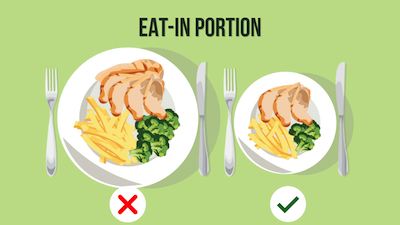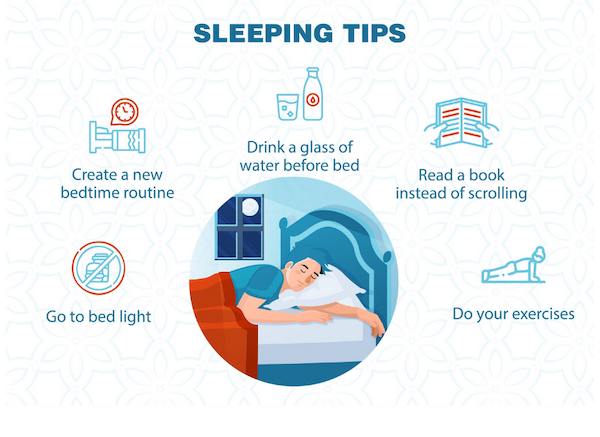Posted on March 8, 2025

Ramadan is a special time for Muslims around the world, a month of fasting, reflection, and spiritual growth. However, the long hours of fasting can sometimes take a toll on the body, leading to fatigue, dehydration, or unhealthy eating habits. To make the most of this sacred month while maintaining your health, here are some practical and healthy Ramadan tips to keep you feeling your best throughout the fasting period.

During Ramadan, hydration is one of the most critical aspects of maintaining your health. While you cannot drink water during fasting hours, it’s essential to hydrate properly during non-fasting hours.
Tips for staying hydrated:
Suhoor and Iftar are your opportunities to nourish your body, so it's important to focus on balanced, nutrient-rich meals that will sustain you throughout the day. Avoid overeating or consuming unhealthy foods that could lead to sluggishness or weight gain.
Here’s how to create a balanced meal:


While it may be tempting to skip the pre-dawn meal to get more sleep, Suhoor is crucial for maintaining your energy and hydration levels throughout the day. Eating a nutritious Suhoor meal helps prevent hunger and keeps your blood sugar levels stable.
Quick Suhoor meal ideas:
After fasting all day, it’s easy to overeat when breaking your fast, but eating large portions can lead to indigestion and discomfort. It's essential to eat in moderation and allow your stomach time to adjust.
Tips for portion control:

To maintain energy levels and keep you feeling full throughout the day, include healthy fats and protein in your Suhoor and Iftar meals. These nutrients help control hunger, provide sustained energy, and support muscle repair.
Healthy sources of fat and protein:


Exercise can still be part of your Ramadan routine, but it’s important to adjust the timing and intensity to avoid exhaustion.
Best times to exercise:

Adequate sleep is essential for overall health and well-being, especially during Ramadan when your sleep schedule may be disrupted. Lack of sleep can lead to fatigue, poor concentration, and mood swings.
Sleep tips during Ramadan:

Ramadan is a time for spiritual reflection, but it’s also important to focus on your mental health. The physical changes during fasting can sometimes lead to irritability or stress.
Ways to maintain mental health:
Ramadan is a time for spiritual growth, but it’s equally important to take care of your physical health. By staying hydrated, eating balanced meals, practicing portion control, and adjusting your exercise routine, you can maintain your health and energy throughout the month. Most importantly, remember that Ramadan is about finding balance, so listen to your body and make choices that support both your spiritual and physical well-being.
Stay healthy, stay mindful, and have a blessed Ramadan! 🌙